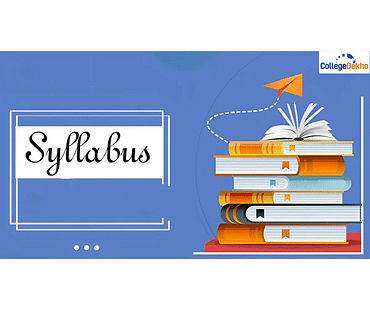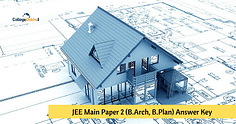The ITI Lift and Escalator Mechanic syllabus includes concepts like Basics of Electricity and Electronics, Layout of lift shafts and escalator mechanisms, Maintenance Practices, etc. The detailed ITI Lift and Escalator Mechanic syllabus can be checked here in this article.

ITI Lift and Escalator Mechanic Syllabus: The syllabus of ITI Lift and Escalator Mechanic trade is meticulously designed to provide candidates with comprehensive training, necessary skills and extensive knowledge to work as Lift and Escalator Mechanics in industries like Construction and Real Estate, Manufacturing and Industrial Plants, Retail Sector, Transportation, Facilities Management Companies etc. The ITI Lift and Escalator Mechanic Trade Syllabus focuses on developing both the technical and non-technical skills necessary to excel as a professional Lift and Escalator Mechanic. Students who complete the trade can expect to be employed as a Lift Technician, Installation Supervisor, Safety Inspector, Escalator Mechanic, Field Service Technician etc. Candidates can check this article to learn more about the ITI Lift and Escalator Mechanic trade syllabus.
ITI Lift and Escalator Mechanic Detailed Syllabus
The detailed syllabus of ITI Lift and Escalator Mechanic can be checked from the below table.
Syllabus | Topics | Related Topics |
|---|---|---|
Professional Knowledge (Theory) | Basics of Electricity and Electronics |
|
Engineering Drawing |
| |
Fundamentals of Lift Technology |
| |
Fundamentals of Escalator Technology |
| |
Maintenance Practices |
| |
Professional Skills (Practical) | Installation |
|
Maintenance |
| |
Troubleshooting |
| |
Employability Skills | Communication |
|
Entrepreneurship |
| |
IT Skills |
| |
Environmental Awareness |
| |
Workshop Calculation and Science |
|
Course Structure of ITI Lift and Escalator Mechanic Trade
The distribution of training hours across the ITI Lift and Escalator Mechanic trade can be checked here in the below table.
Course Syllabus | National Training Hours | |
|---|---|---|
1st Year | 2nd Year | |
Trade Practical | 100 | 1000 |
Trade Theory | 280 | 360 |
Workshop Calculation & Science | 80 | 80 |
Engineering Drawing | 80 | 80 |
Employability Skills | 160 | 80 |
Total | 1600 | 1600 |
ITI Lift and Escalator Mechanic Trade Marking Scheme
Candidates can follow the below table to learn about the marking scheme for internal assessment.
Grade | Particulars |
|---|---|
60% to 75% |
|
75% to 90% |
|
Above 90% |
|
Assessment Criteria
The following evidence will be checked as methods of assessment for ITI Lift and Escalator Mechanic Trade.
- Job Carried out in Labs / Workshops
- Record Book / Daily Diary
- Answer Sheet of Assessment
- Viva-Voce
- Progress Chart
- Attendance and Punctuality
- Assignment
- Project Work
With the help of the syllabus of ITI Lift and Escalator Mechanic, aspirants can have a detailed knowledge of the topics that are required to be studied during the duration of their course.
To get guidance for admission, feel free to dial our toll-free number 1800-572-9877 or fill out CollegeDekho’s Common Application Form . An admissions counsellor will be assigned to you to make your journey hassle-free. In case of any queries or concerns, you can write to us in the QnA zone .
FAQs
The key subjects included in the ITI Lift and Escalator Mechanic Trade are Electrical terms and definitions: Voltage, current, resistance, and power, Introduction to electronics: Diodes, transistors, capacitors, and relays, Basic electrical and mechanical symbols, Components: Shaft, car, counterweight, ropes, guide rails, Types and applications of escalators, Wiring and connecting electrical components etc.
Yes, there are plenty of job opportunities like Lift Technician, Escalator Mechanic, Maintenance Engineer, Field Service Technician, Installation Supervisor, Safety Inspector, Troubleshooting Specialist etc. if you complete the ITI Lift and Escalator Mechanic trade.
The total time duration of the ITI Lift and Escalator Mechanic trade is 2 years.

















Similar Articles
ITI Admissions in India 2026: State-wise Dates, Online Form, Fees, Merit List, Courses and Fees
West Bengal (WBSCVT) ITI Admission 2026: Registration, Merit List, Seat Allotment
List of Government Jobs after ITI: Job Roles, Eligibility, Salary, Recruitment Process
Best ITI Courses After 12th in 2025: Stream-wise, ITI Courses List, Types of Courses
Tamil Nadu ITI Admission 2026: Eligibility, Trades Offered, Colleges List, and Counselling Process
Jharkhand ITI Admission 2025: Spot Round Admission (Ongoing), Trades Available, Top ITI Colleges, Admission Process